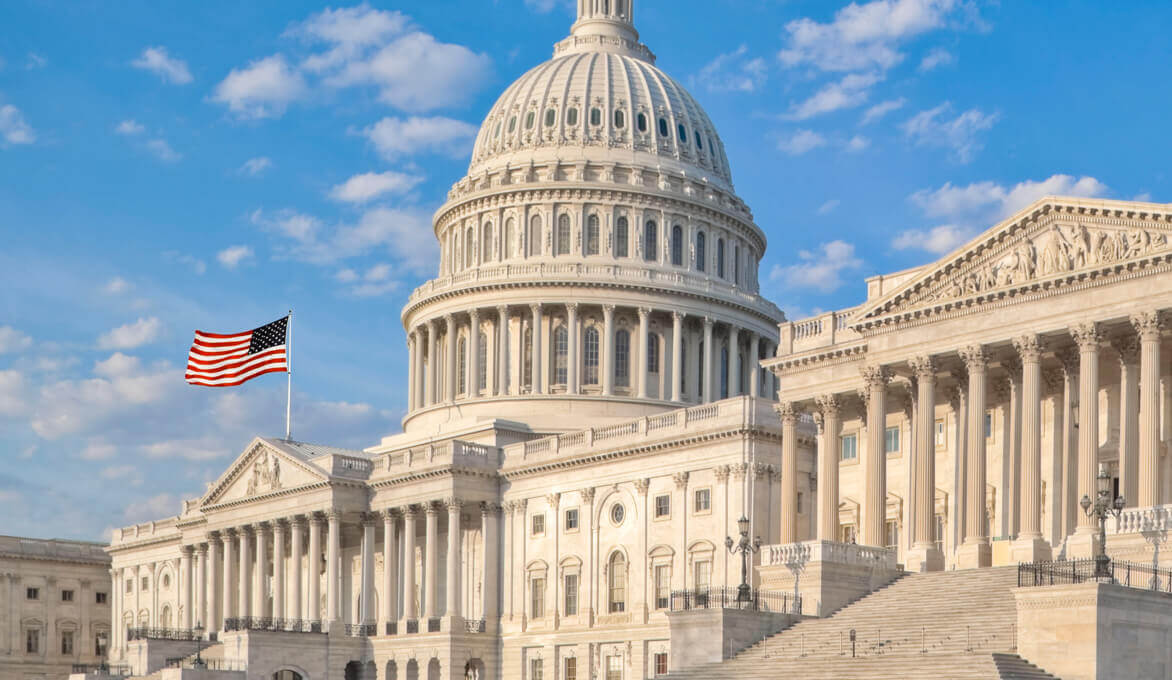Additional New Loan Program – Main Street Lending Program

On April 9, the Federal Reserve announced an additional loan program for small and mid-sized businesses called the Main Street Lending Program (MSLP).
The MSLP was authorized by the CARES Act, and joins some other loans that recently were made available. To date, federal loan options specifically providing funding for those impacted by the COVID-19 pandemic consist of:
- Economic Injury Disaster Loan (EIDL) – created by the Families First Act, administered by the SBA.
- Paycheck Protection Program (PPP) – created by the CARES Act, administered through local banks working with the SBA, has the potential to be wholly/partially forgiven.
- Main Street Lending Program (MSLP) – created by the CARES Act, administered through local banks working with the Federal Reserve (consisting of two alternatives: MSNLF and MSELF).
- Other CARES Act loans that are specific to the airline and national security industries.
Under the MSLP, small and mid-sized businesses that were in good financial standing before the crisis can apply at eligible lenders for 4-year loans, where principal and interest payments will be deferred for one year. Businesses that have taken advantage of the Paycheck Protection Program (PPP) may also take out MSLP loans.
Eligible lenders are U.S. insured depository institutions, U.S. bank holding companies, and U.S. savings and loan holding companies.
Eligible Borrowers are businesses with up to 10,000 employees or up to $2.5 billion in 2019 annual revenues. Each Eligible Borrower must be a business that is created or organized in the United States or under the laws of the United States with significant operations in and a majority of its employees based in the United States.
MSLP has two loan programs, the Main Street New Loan Facility (MSNLF) and the Main Street Expanded Loan Facility (MSELF).
What are the differences between the two loans?
New Loan Facility: loans under this facility would be structured as new term loans. In general, this facility may be available to borrowers that either do not have existing credit agreements or have the capacity under existing credit agreements to incur additional indebtedness under this facility based on terms of preexisting debt.
Expanded Loan Facility: loans under this facility are structured as increases to term loan facilities that are already outstanding.
Working with your lender to understand the options and obtaining their consent may be required in order for a borrower to participate.
Are there forgiveness provisions similar to the PPP loans?
An important difference between these new loans and PPP loans that are issued under SBA programs include that loans issued under these facilities will not be eligible for forgiveness.
Here is a summary of MSNLF provisions:
Eligible Loans: unsecured term loan that was originated on or after April 8, 2020, provided that the loan has the following features:
- 4 year maturity;
- Amortization of principal and interest deferred for one year;
- Adjustable rate of SOFR + 250-400 basis points;
- Minimum loan size of $1 million;
- Maximum loan size that is the lesser of (i) $25 million or (ii) an amount that, when added to the Eligible Borrower’s existing outstanding and committed but undrawn debt, does not exceed four times the Eligible Borrower’s 2019 earnings before interest, taxes, depreciation, and amortization (“EBITDA”); and
- Prepayment permitted without penalty.
Required Attestations: In addition to certifications required by applicable statutes and regulations, the following attestations will be required with respect to each loan:
- The lender must attest that the proceeds of the loan will not be used to repay or refinance pre-existing loans or lines of credit made by the lender to the borrower.
- The borrower must commit to refrain from using the proceeds of the loan to repay other loan balances. The borrower must commit to refrain from repaying other debt of equal or lower priority, with the exception of mandatory principal payments, unless the borrower has first repaid the loan in full.
- The lender must attest that it will not cancel or reduce any existing lines of credit outstanding to the borrower. The borrower must attest that it will not seek to cancel or reduce any of its outstanding lines of credit with the lender or any other lender.
- The borrower must attest that it requires financing due to the exigent circumstances presented by the COVID-19 pandemic, and that, using the proceeds of the loan, it will make reasonable efforts to maintain its payroll and retain its employees during the term of the loan.
- The borrower must attest that it meets the EBITDA leverage condition stated in item 5 of the above Eligible Loans section.
- The borrower must attest that it will follow compensation, stock repurchase, and capital distribution restrictions that apply to direct loan programs under section 4003(c)(3)(A)(ii) of the CARES Act, including prohibition of repurchasing equity securities for publically traded companies and restrictions on the payment of dividends and other shareholder distributions.
- Lenders and borrowers will each be required to certify that the entity is eligible to participate in the MSNLF, including restrictions related to the conflicts of interest prohibition in section 4019(b) of the CARES Act.
Borrowers that participate in MSNLF may not also participate in MSELF.
Here is a summary of MSELF provisions:
MSELF loans are used to increase the size of loans originated prior to April 8, 2020.
Eligible Loans: a term loan that was originated before April 8, 2020, provided that the upsized tranche of the loan has the following features:
- 4 year maturity;
- Amortization of principal and interest deferred for one year;
- Adjustable rate of SOFR + 250-400 basis points;
- Minimum loan size of $1 million;
- Maximum loan size that is the lesser of (i) $150 million, (ii) 30% of the borrower’s existing outstanding and committed but undrawn bank debt, or (iii) an amount that, when added to the borrower’s existing outstanding and committed but undrawn debt, does not exceed six times the borrower’s 2019 earnings before interest, taxes, depreciation, and amortization (“EBITDA”); and
- Prepayment permitted without penalty.
Required Attestations: In addition to certifications required by applicable statutes and regulations, the following attestations will be required with respect to the upsized tranche of each loan:
- The lender must attest that the proceeds of the upsized tranche of the loan will not be used to repay or refinance pre-existing loans or lines of credit made by the lender to the borrower, including the pre-existing portion of the original loan.
- The borrower must commit to refrain from using the proceeds of the upsized tranche of the loan to repay other loan balances. The borrower must commit to refrain from repaying other debt of equal or lower priority, with the exception of mandatory principal payments, unless the borrower has first repaid the original loan in full.
- The lender must attest that it will not cancel or reduce any existing lines of credit outstanding to the borrower. The borrower must attest that it will not seek to cancel or reduce any of its outstanding lines of credit with the lender or any other lender.
- The borrower must attest that it requires financing due to the exigent circumstances presented by the COVID-19 pandemic, and that, using the proceeds of the upsized tranche of the loan, it will make reasonable efforts to maintain its payroll and retain its employees during the term of the upsized tranche of the loan.
- The borrower must attest that it meets the EBITDA leverage condition stated in item 5 of the above Eligible Loans section.
- The borrower must attest that it will follow compensation, stock repurchase, and capital distribution restrictions that apply to direct loan programs under section 4003(c)(3)(A)(ii) of the CARES Act, including prohibition of repurchasing equity securities for publically traded companies and restrictions on the payment of dividends and other shareholder distributions.
- The lenders and borrowers will each be required to certify that the entity is eligible to participate in the Facility, including restrictions related to the conflicts of interest prohibition in section 4019(b) of the CARES Act.
Borrowers that participate in MSELF may not also participate in MSNLF.
How does the program work?
The Federal Reserve intends to create a single common special purpose vehicle (“SPV”) in which it will make a $75 billion equity investment that supports the purchase of up to $600 billion in loans.
For MSNLF, the SPV will purchase a 95% participation in a loan at par value, and the lender will retain 5% of the loan. The SPV and the lender will share risk on a pari passu basis. For MSELF, the SPV will purchase a 95% participation in the upsized tranche of the loan, provided that it is upsized on or after April 8, 2020, at par value. The SPV and the lender will share risk in the upsized tranche on a pari passu basis. Any collateral securing a loan, whether such collateral was pledged under the original terms of the loan or at the time of upsizing, will secure the loan participation on a pro rata basis.
Facility Fee: For MSNLF, the lender will pay the SPV a facility fee of 100 basis points of the principal amount of the loan participation purchased by the SPV. The lender may require the borrower to pay this fee.
Loan Origination and Servicing: For MSNLF, the borrower will pay the lender an origination fee of 100 basis points of the principal amount of the loan. The SPV will pay the lender 25 basis points of the principal amount of its participation in the loan per annum for loan servicing. For MSELF, the borrower will pay the lender a fee of 100 basis points of the principal amount of the upsized tranche of the loan at the time of upsizing. The SPV will pay the lender 25 basis points of the principal amount of its participation in the upsized tranche of the loan per annum for loan servicing.
Facility Termination: The SPV will cease purchasing participations in loans on September 30, 2020, unless the Federal Reserve Board and the Treasury Department extend the facility. The Federal Reserve Bank will continue to fund the SPV after such date until the SPV’s underlying assets mature or are sold.
We will keep you posted as further information becomes available. As always, please do not hesitate to contact us with any questions at all that you have related to the CARES Act, related legislation, or anything else caused by these uncertain events. We are here to help in any way we can.
For more information or a discussion on how this may impact you, please contact Jeff Skaggs or your BNN advisor at 800.244.7444.
Disclaimer of Liability: This publication is intended to provide general information to our clients and friends. It does not constitute accounting, tax, investment, or legal advice; nor is it intended to convey a thorough treatment of the subject matter.
